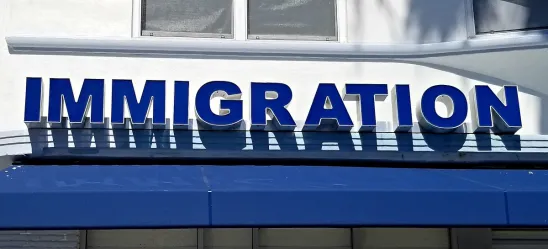U.S. immigration policy has changed quickly and substantially in the past two years. While a handful of policies have received the majority of media attention—such as the separation of families at the border—the Department of Homeland Security has implemented numerous, far less visible changes that have dramatically impacted the ability to seek immigration relief in this country. These policy changes have transformed the way in which lawyers and their pro bono clients must navigate the immigration system.
Accounting for Unpredictability
As a result of the exceedingly fast changes to immigration policy, it has become increasingly challenging to predict a client’s likelihood of obtaining certain types of immigration relief or to assess the risks associated with attempting to do so.
For example, in October 2018, the United States Citizenship and Immigration Services (USCIS) began implementing a new policy that mandates USCIS to issue Notices to Appear (NTA) in immigration court removal proceedings upon making an unfavorable decision on an immigration application where the applicant is an undocumented immigrant. This far-reaching guidance would, for instance, encompass vulnerable undocumented victims of domestic abuse seeking humanitarian-based relief, thus creating a perverse disincentive for them to come forward and cooperate with law enforcement. In June 2018, the Attorney General’s decision in Matter of A-B- purported to make it harder for immigrants to qualify for asylum based on gang or domestic violence, a decision that was, in turn, blocked in December by a federal judge in Washington, D.C.
Given the frequency of these changes, it is important to fully and carefully inform clients about the unpredictability of current policies, and the greater risks associated with seeking immigration relief.
Exercising Caution
Being thorough when preparing and filing immigration applications has become all the more important. As of September 2018, USCIS adjudicators are empowered to deny more readily an application without first issuing a Request for Evidence (RFE). In the past, USCIS did not issue RFEs or deny an application unless there was no possibility that the deficiency could be cured by submission of additional evidence. Under the new policy, if all required evidence is not submitted with the original application, USCIS may deny the application without giving the applicant an opportunity to provide additional evidence to cure the deficiency.
This new policy has required us to gather as much supporting evidence as we can from the outset of a case to ensure that our clients’ applications are complete and robust at the time of submission. As a result, it has become even more important for us to build trust with our clients as quickly as possible to make sure that they feel comfortable disclosing all relevant evidence and information—including potentially sensitive facts—before we submit their applications to USCIS.
Understanding Timing
There have been significant changes in processing times for many immigration applications. According to an analysis of USCIS data published by The American Immigration Lawyers Association, the overall average processing time for immigration cases increased by 46 percent over the past two fiscal years, even as case receipt volume appeared to markedly decrease in FY 2018. Being forced to wait even longer to receive decisions on immigration applications can have serious negative consequences for our clients, many of whom have difficulty finding employment or securing necessary benefits during this time.
However, the change in asylum interview scheduling policy represents one example of a processing time that has become significantly shorter for certain applicants, posing its own unique challenges. As of January 29, 2018, USCIS began giving priority to the most recently filed asylum applications when scheduling asylum interviews. This new policy has forced newly-filed asylum claims to be adjudicated rapidly, before the immigrants have sufficient time to prepare their applications, while it has required applicants who filed their applications months or even years before the change in policy to wait even longer to receive their interviews.
The collective effect of these policy changes? Legally immigrating to this country is harder than it used to be. Our pro bono immigration clients, many of whom are fleeing violence in their home countries, have been forced to overcome these new challenges as we work with them to ensure that they receive the benefits they rightfully deserve—no matter how long, difficult, or resource-intensive this fight may be.



 />i
/>i

